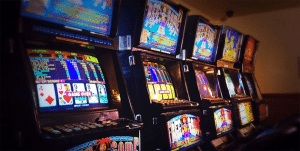 Pokies are under the microscope in Tasmania as a parliamentary inquiry is underway to determine how poker machines will be licensed and regulated in the state from 2023 onwards.
Pokies are under the microscope in Tasmania as a parliamentary inquiry is underway to determine how poker machines will be licensed and regulated in the state from 2023 onwards.
Last Tuesday, a Joint Select Committee of six members gathered in Hobart to discuss the future of electronic gaming in Tasmania. The Committee is made up of three upper house independents and one each from the Liberal Party, Labor Party and the Greens.
Amongst other concerns, the major focus of the inquiry is to consider community attitudes relating to the gambling industry in Tasmania, with a particular focus on the location, number and type of poker machines available. The inquiry will also review the social and economic impacts of gambling in the state.
The Committee has received roughly 148 submissions from individuals, and will continue to hold public hearings as it seeks opinions on how pokies should be regulated post-2023. Big players in the gambling industry like Clubs Australia and Woolworths owned Australian Leisure & Hospitality (ALH) have also made submissions.
Several anti-pokies groups have come forward to voice their concerns to the committee about the widespread damage poker machines are causing in the state.
Pat Caplice from grass-roots activist group Rein the Pokies said he has witnessed first-hand the impact pokies have on society. Having worked in the Glenorchy area prior to the introduction of pokies in the towns clubs and pubs, he told the committee all the local pubs he spent time in when he was younger were now “pokies palaces.”
Mr Caplice said, “I know Glenorchy and I know what sort of town it was when I grew up and started my early adulthood there. I saw the effect when pokies were introduced in 1997… every pub I grew up in is now a pokies palace, intended not as a social area, but to rake money out of people.”
He said above all it was the addictive nature of the pokies he has the biggest problem with.
Rein the Pokies is one of many groups hoping for the pokies to be removed from Tasmania’s clubs and pubs.
The groups sentiments were shared by gambling expert Dr Charles Livingstone from Monash University who said pokies were the “perfect addiction machines.”
Dr Livingstone said, “We now know from physiological and MRI measurements that people are stimulated by an actual win, by a loss disguised as a win, and by a near miss, and the machines are now engineered to produce both of those latter two at quite a high rate.”
He said people in distress were most vulnerable to the addictive qualities of the pokies as they trigger the reward system in the brain, releasing dopamine and providing a sense of happiness. He says pokies make the most money in “areas of social and economic stress because people are much more likely to be craving relief.”
Research conducted by Dr Livingstone revealed the more disadvantaged a local government area in Tasmania is, the more likely it is to offer more pokie machines.
Currently, no new licenses to operate the pokies are legally allowed to be issued until 2019, and under current legislation no changes can be made to an existing policy until 2023. Community organisations like Rein the Pokies are hoping for the machines to be removed from Tasmania’s clubs and pubs entirely from 2023 onwards.
The inquiry is due to report its findings later in 2017.